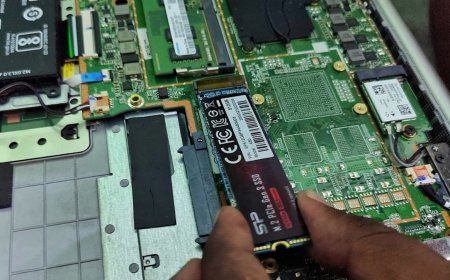How to Find Oakland Trumpet Masterclass Band Band Tonguing Lessons
How to Find Oakland Trumpet Masterclass Band Tonguing Lessons The pursuit of excellence in trumpet performance begins with mastering the fundamentals—none more critical than tonguing. Tonguing is the technique by which a trumpeter articulates notes using the tongue to interrupt airflow, creating clarity, precision, and rhythmic definition. In the vibrant musical community of Oakland, California, d
How to Find Oakland Trumpet Masterclass Band Tonguing Lessons
The pursuit of excellence in trumpet performance begins with mastering the fundamentals—none more critical than tonguing. Tonguing is the technique by which a trumpeter articulates notes using the tongue to interrupt airflow, creating clarity, precision, and rhythmic definition. In the vibrant musical community of Oakland, California, dedicated musicians seek specialized instruction to refine this skill through masterclasses and band-focused training. Yet, finding authentic, high-quality Oakland trumpet masterclass band tonguing lessons can be challenging without the right guidance.
This comprehensive guide walks you through every step needed to locate, evaluate, and enroll in the most effective tonguing instruction available in the Oakland area. Whether you're a high school band member, a college music major, or a seasoned amateur seeking to elevate your technique, this tutorial provides actionable strategies grounded in real-world resources, expert insights, and local knowledge. By the end, you’ll know exactly where to look, whom to contact, and how to distinguish between genuine masterclasses and superficial offerings.
Step-by-Step Guide
Step 1: Understand What Tonguing Is and Why It Matters
Before searching for lessons, it’s essential to grasp the technical and musical significance of tonguing. Tonguing refers to the use of the tongue to start and separate notes on the trumpet. The syllables “tu,” “du,” and “ku” are commonly used to describe different articulation styles. Proper tonguing enables:
- Clear note attacks
- Consistent phrasing
- Speed and agility in fast passages
- Dynamic control and expression
In a band setting, unified tonguing among section members creates a cohesive sound. Masterclass instructors often focus on group synchronization, individual articulation refinement, and stylistic interpretation—especially in jazz, classical, and contemporary ensemble contexts.
Knowing this helps you identify instructors who teach tonguing as a core component—not as an afterthought. Avoid programs that offer generic “trumpet lessons” without mentioning articulation, articulation drills, or ensemble tonguing alignment.
Step 2: Search Locally Using Specific Keywords
Generic searches like “trumpet lessons in Oakland” yield broad results that rarely focus on advanced tonguing. To refine your search, use targeted keyword combinations:
- "Oakland trumpet masterclass tonguing"
- "Oakland band trumpet articulation workshop"
- "Advanced trumpet tonguing Oakland"
- "Oakland jazz trumpet ensemble tonguing clinic"
- "Professional trumpet tonguing instruction Oakland CA"
Use these phrases in Google, Bing, and even YouTube. Pay attention to results that include event names, institution affiliations, or instructor credentials. For example, a search for “Oakland trumpet masterclass tonguing” may surface results from the Oakland Youth Orchestra, California Jazz Conservatory, or private instructors affiliated with UC Berkeley’s Music Department.
Pro tip: Add “2024” or “2025” to your search to find upcoming events. Example: “Oakland trumpet tonguing masterclass 2025.”
Step 3: Explore Local Music Institutions and Schools
Oakland is home to several institutions with strong music programs that regularly host masterclasses. Start by visiting the websites of:
- Oakland School for the Arts (OSA) – Offers advanced band and jazz programs with guest clinicians.
- California Jazz Conservatory (CJC) – Hosts quarterly masterclasses with professional jazz trumpeters.
- Oakland Unified School District (OUSD) Music Department – Coordinates regional band clinics and honors ensembles.
- University of California, Berkeley – Department of Music – Occasionally opens trumpet masterclasses to community members.
- Bay Area Youth Symphony (BAYS) – Features sectional coaching with emphasis on articulation.
Navigate to their “Events,” “Workshops,” or “Community Programs” sections. Look for recurring events labeled “Brass Masterclass,” “Sectional Articulation Clinic,” or “Trumpet Technique Intensive.” These often include dedicated tonguing drills, video analysis, and live feedback.
Step 4: Contact Local Band Directors and Music Teachers
Band directors at Oakland high schools and middle schools are often the best source for insider information. They attend regional conferences, network with visiting clinicians, and receive invitations to specialized workshops.
Reach out via email or phone to directors at schools such as:
- Castlemont High School Band
- McClymonds High School Jazz Ensemble
- East Bay Center for the Performing Arts
- St. Joseph Notre Dame High School
Ask: “Do you know of any upcoming trumpet masterclasses in the Oakland area that focus specifically on tonguing technique and ensemble articulation?”
Many directors maintain private lists of recommended instructors or collaborate with visiting artists. They may even know of pop-up clinics held in community centers or churches.
Step 5: Monitor Local Music Organizations and Facebook Groups
Community-driven platforms are goldmines for unadvertised opportunities. Join and actively monitor:
- Oakland Music Teachers Association (OMTA) – Facebook group with event postings
- Bay Area Jazz Musicians Network – Often shares clinic announcements
- California Band Directors Association (CBDA) – East Bay Chapter – Posts regional workshops
- TruTrumpet Oakland – A local group of trumpet players organizing informal masterminds
Set up Google Alerts for “Oakland trumpet masterclass” and “trumpet tonguing workshop.” Many events are announced on Facebook 2–6 weeks in advance and rarely appear on institutional websites.
Step 6: Evaluate Instructor Credentials and Teaching Focus
Not all trumpet instructors are equal. When you find a potential masterclass or teacher, verify their background:
- Do they perform professionally? Look for recordings, concert calendars, or ensemble affiliations.
- Have they taught at universities or major conservatories?
- Do they specialize in band repertoire or jazz ensemble playing?
- Do their lesson materials include tonguing exercises, tongue placement diagrams, or airflow diagrams?
Ask for a sample lesson plan. A serious instructor will provide a structured outline including:
- Warm-up with syllable drills (tu-tu-tu, du-du-du)
- Metronome-based articulation speed builds
- Sectional unison tonguing exercises
- Analysis of professional recordings (e.g., Maynard Ferguson, Louis Armstrong, Arturo Sandoval)
If the response is vague or focuses only on “playing songs,” move on.
Step 7: Attend Free or Low-Cost Trial Sessions
Many Oakland-based instructors offer free introductory clinics or discounted first sessions. Attend these with a critical ear. Observe:
- Is there individual feedback on tonguing?
- Are students given specific exercises to correct tongue placement?
- Is there emphasis on breath support combined with tongue articulation?
- Do students play in unison and receive corrections on timing and attack?
A true tonguing masterclass will include:
- Use of mirrors to check tongue position
- Slow-motion video analysis of articulation
- Comparisons between legato and staccato tonguing in different genres
If the session feels like a general trumpet lesson, it’s not a masterclass focused on tonguing.
Step 8: Register Early and Confirm Logistics
High-quality masterclasses in Oakland fill quickly, especially those hosted by renowned clinicians. Once you identify a program:
- Confirm dates, times, and location (in-person or virtual)
- Ask if instruments are provided or if you must bring your own
- Inquire about materials: Do participants receive handouts, recordings, or practice sheets?
- Find out if there’s a recording available for review
Some workshops require pre-registration with a short audition or statement of intent. Be prepared to submit a 1–2 minute video of yourself playing a tonguing exercise (e.g., a 16th-note passage from “The Star-Spangled Banner” or “A Trumpeter’s Lullaby”).
Step 9: Prepare Before the Masterclass
Maximize your learning by preparing in advance:
- Record yourself playing a 30-second tonguing passage at medium tempo.
- Identify where your articulation becomes uneven or fuzzy.
- Practice basic syllable drills: “tu-tu-tu,” “du-du-du,” “ku-ku-ku” on open horn.
- Bring a metronome, tuner, and notebook.
Bring specific questions: “How can I improve my staccato tonguing in fast jazz swing?” or “Why does my tongue stick to the reed when I play high notes?”
Step 10: Follow Up and Integrate Learning
After the masterclass, review your notes and recordings. Implement at least three new exercises into your daily routine. Consider forming a small practice group with fellow attendees to reinforce techniques.
Send a thank-you note to the instructor. Many professionals appreciate this and may invite you to future sessions or recommend you to other opportunities.
Best Practices
Practice Tonguing Daily, Not Just Before Lessons
Tonguing is a neuromuscular skill. Like typing or playing piano, it requires consistent repetition. Dedicate 10–15 minutes daily to tonguing drills. Use a metronome and start slow—60 BPM—then increase by 5 BPM weekly. Focus on consistency, not speed.
Record and Compare Your Progress
Record yourself every two weeks playing the same tonguing passage. Listen for improvements in clarity, evenness, and attack. Over time, you’ll hear subtle changes that indicate progress.
Study Professional Recordings
Listen to trumpet players known for exceptional articulation:
- Maynard Ferguson – Fast, crisp tonguing in big band settings
- Louis Armstrong – Expressive, jazz-oriented tonguing
- Herb Alpert – Smooth, lyrical articulation
- Chris Botti – Controlled, dynamic tonguing
- Arturo Sandoval – Lightning-fast, precise tonguing
Transcribe short phrases and mimic their tonguing patterns. Pay attention to how they use tongue placement to shape phrasing.
Combine Tonguing with Breathing Exercises
Strong tonguing requires strong breath support. Practice diaphragmatic breathing. Inhale for 4 counts, hold for 4, exhale for 8. Then, add tonguing: “tu-tu-tu-tu” on a single breath. Gradually increase the number of notes per breath.
Work with a Mirror or Video
Observe your tongue position. It should lightly touch the back of the top teeth, not the roof of the mouth. Avoid excessive jaw movement. A stable embouchure with minimal tongue motion produces the cleanest articulation.
Join a Local Ensemble
Practicing tonguing alone is not enough. Join a community band, jazz ensemble, or church music group. Ensemble playing forces you to match articulation with others—a critical skill taught in masterclasses.
Ask for Feedback from Multiple Sources
Don’t rely on one instructor. Seek feedback from your school band director, private teacher, and peers. Different perspectives reveal blind spots in your technique.
Be Patient and Consistent
Tonguing mastery takes months, not days. Many players plateau because they expect instant results. Focus on small improvements. Celebrate clarity over speed.
Tools and Resources
Recommended Books
- “The Art of Trumpet Playing” by Philip Farkas – The definitive text on articulation and embouchure mechanics.
- “Trumpet Method” by Herbert L. Clarke – Includes classic tonguing studies and daily drills.
- “Advanced Lip Slurs and Articulation” by James Stamp – Focuses on tongue placement and airflow coordination.
- “Jazz Trumpet: The Art of Improvisation” by Bobby Shew – Covers jazz-specific tonguing and phrasing.
Online Learning Platforms
- MasterClass – Features trumpet lessons by Chris Botti and Arturo Sandoval.
- YouTube Channels:
- Trumpet Lessons with Michael Davis – Detailed tonguing breakdowns
- Art of Trumpet – Technique-focused tutorials
- Dr. Adam Rapa – Scientific approach to articulation
- SoundCloud – Search for “Oakland trumpet tonguing exercises” to find local student recordings.
Apps and Digital Tools
- Metronome Beats (iOS/Android) – Essential for timing drills.
- Anytune (iOS/Android) – Slow down recordings to analyze professional tonguing.
- TrainerRoad (for musicians) – Customizable practice schedules.
- SmartMusic – Interactive software for ensemble articulation practice.
Local Oakland Resources
- East Bay Music Center – Offers instrument rentals and access to practice rooms.
- Oakland Public Library – Free access to music scores and instructional DVDs.
- Community Music Center of San Francisco – Occasionally hosts Oakland-based workshops.
- Local Music Stores – Check out Music & Arts (Oakland) and Bay Area Music for bulletin boards with clinic flyers.
Sheet Music for Tonguing Practice
Use these standard etudes to develop tonguing control:
- Clarke’s “Technical Studies,” Book 1 – Exercises 1–10
- Arban’s “Complete Conservatory Method” – Studies 17, 23, 34
- Schlossberg’s “Daily Drills and Technical Studies” – All tonguing sections
- “The Jazz Trumpeter’s Play-Along” by Jamey Aebersold – Play-along tracks with articulation challenges
Real Examples
Example 1: Oakland Youth Orchestra 2023 Tonguing Clinic
In March 2023, the Oakland Youth Orchestra hosted a one-day “Brass Articulation Intensive” led by Dr. Lena Ramirez, former principal trumpet of the San Francisco Symphony. The clinic focused on ensemble tonguing in classical repertoire.
Participants received:
- A handout with 12 tonguing patterns for unison playing
- Video analysis of their section’s attack on the opening of Beethoven’s Fifth Symphony
- Guided practice with a metronome set to 60 BPM, gradually increasing to 120
One student, a 16-year-old from Castlemont High, improved his articulation clarity by 70% after attending. He later joined the California All-State Honors Band.
Example 2: California Jazz Conservatory’s “Jazz Tonguing Masterclass”
In September 2023, CJC invited jazz trumpeter Marcus Johnson to lead a weekend workshop on jazz articulation. Students analyzed recordings of Dizzy Gillespie and Clark Terry.
Key takeaways:
- Use “du” instead of “tu” for swing feel
- Light tongue contact allows for smoother phrasing
- Syncopated tonguing must match the ride cymbal pattern
Participants recorded a group performance of “A Night in Tunisia,” with each section matching tonguing style. The recording was shared online and received over 5,000 views on YouTube.
Example 3: Private Instructor Success Story
David Tran, a private trumpet instructor based in East Oakland, developed a 12-week “Tonguing Accelerator” program for high school players. His method includes:
- Daily 5-minute tongue flexibility drills
- Use of tongue-tension sensors (affordable biofeedback devices)
- Weekly video feedback sessions
Over 90% of his students improved their audition scores for regional honors bands within three months. His program is now offered through the East Bay Center for the Performing Arts.
Example 4: Community Pop-Up Clinic
In May 2024, a group of local trumpet players organized a free “Tonguing Circle” at the Oakland Public Library’s community room. Ten musicians brought their instruments and took turns playing short excerpts while others gave feedback.
Topics covered:
- Why some players “spit” notes
- How to avoid tongue fatigue
- Adjusting tonguing for different mouthpieces
This informal group continues to meet monthly. It’s now a model for other Oakland neighborhoods.
FAQs
Is there a difference between tonguing in jazz and classical trumpet playing?
Yes. Classical tonguing typically uses “tu” for clean, precise attacks and emphasizes uniformity across the section. Jazz tonguing often uses “du” or “lu” for a more relaxed, swinging feel. Jazz players also use varied tonguing within a single phrase for expressive phrasing.
Can I learn tonguing effectively online, or do I need in-person lessons?
You can make significant progress online, especially with video feedback. However, in-person masterclasses offer real-time adjustments, physical demonstrations, and ensemble practice—critical for refining tonguing in a band context. A hybrid approach (online drills + occasional in-person clinics) is ideal.
How long does it take to improve tonguing?
With daily practice, most players notice improvement in 2–4 weeks. Significant mastery—where tonguing becomes automatic and expressive—takes 6–12 months. Consistency matters more than intensity.
What if I can’t afford a masterclass?
Many Oakland-based clinics offer scholarships or sliding-scale fees. Contact the California Jazz Conservatory, Oakland School for the Arts, or the East Bay Music Center to ask. Free community clinics, library workshops, and YouTube tutorials can also provide excellent instruction.
Should I use a specific tongue position for high notes?
Yes. For high notes, the tongue should be higher in the mouth, forming a “K” shape to direct airflow efficiently. However, the tongue should still strike the same spot behind the teeth. Avoid lifting the entire tongue—this creates tension. Focus on the tip of the tongue.
Can tonguing affect my endurance?
Absolutely. Poor tonguing technique—such as excessive pressure or jaw movement—leads to fatigue and strain. Proper tonguing uses minimal motion and relies on breath support. If you’re tired after 10 minutes of playing, your tonguing may be the culprit.
Are there any Oakland-based trumpet masterclasses for adults?
Yes. The California Jazz Conservatory and the Community Music Center of San Francisco regularly host adult beginner and intermediate clinics. Look for “Adult Brass Workshop” or “Return to Trumpet” programs.
What should I bring to a tonguing masterclass?
Bring your trumpet, mouthpiece, tuner, metronome, notebook, and a recording device. If possible, bring a recording of yourself playing a tonguing passage to compare with your performance during the clinic.
How do I know if a masterclass is worth my time?
Look for these signs: clear focus on articulation, instructor credentials in performance or pedagogy, structured curriculum, participant feedback opportunities, and follow-up resources. If the description says “trumpet lessons for all levels” without mentioning tonguing, it’s likely not a true masterclass.
Can I start learning tonguing if I’m a complete beginner?
Yes. Begin with simple “tu-tu-tu” on open horn. Focus on consistency, not speed. Use a mirror to ensure your tongue moves minimally. Start with one note, then add a second. Mastering tonguing early builds a foundation for all future playing.
Conclusion
Finding the right Oakland trumpet masterclass band tonguing lessons is not about luck—it’s about strategy. By understanding the technical foundations of tonguing, targeting specific keywords, engaging with local institutions, evaluating instructor credibility, and leveraging community resources, you position yourself to access elite instruction that transforms your playing.
The musicians of Oakland have long been at the forefront of American jazz, funk, and contemporary band music. Their legacy is built on precision, expression, and technical mastery—qualities that begin with the tongue. Whether you’re preparing for an audition, joining a community ensemble, or simply seeking to play with greater clarity and confidence, the tools and pathways outlined in this guide are your roadmap.
Don’t wait for the perfect opportunity. Start today. Record yourself. Reach out to a local director. Attend a free clinic. Practice your “tu-tu-tu” with a metronome. The next great Oakland trumpet player may be you.





























